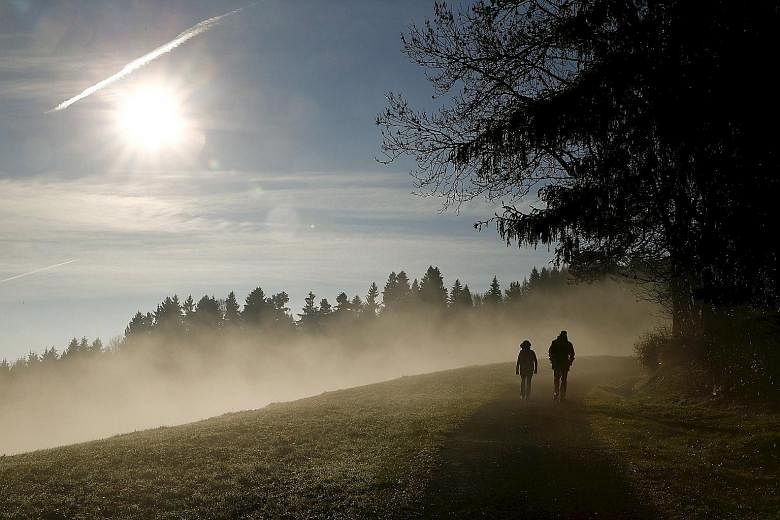OSLO • An expansion of Europe's forests towards dark green conifers has stoked global warming, according to a study on Thursday at odds with a widespread view that planting more trees helps human efforts to slow rising temperatures.
Forest changes have nudged Europe's summer temperatures up by 0.12 deg C since 1750, largely because many nations have planted conifers such as pines and spruce whose dark colour traps the sun's heat, scientists said.
Lighter-coloured, broad-leafed trees, such as oak or birch, reflect more sunlight back into space but have lost ground to fast-growing conifers, used for everything from building materials to pulp.
Overall, the area of Europe's forests has expanded by 10 per cent since 1750.
"Two and a half centuries of forest management in Europe have not cooled the climate," the team led by France's Laboratoire des Sciences du Climat et de l'Environnement wrote in the journal Science.
It said the changes in the make-up of Europe's forests outweighed trees' role in curbing global warming.
Trees absorb carbon dioxide, the main greenhouse gas from burning fossil fuels, from the air. "It's not all about carbon," lead author Kim Naudts said, adding government policies to favour forests should be re-thought to take account of factors such as their colour and changes to moisture and soils.
REUTERS

